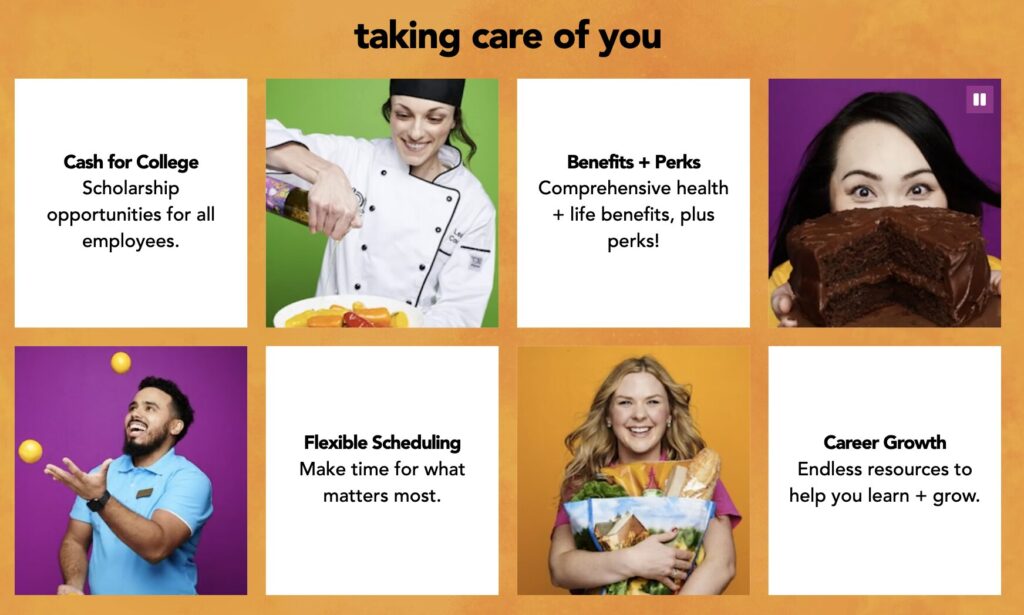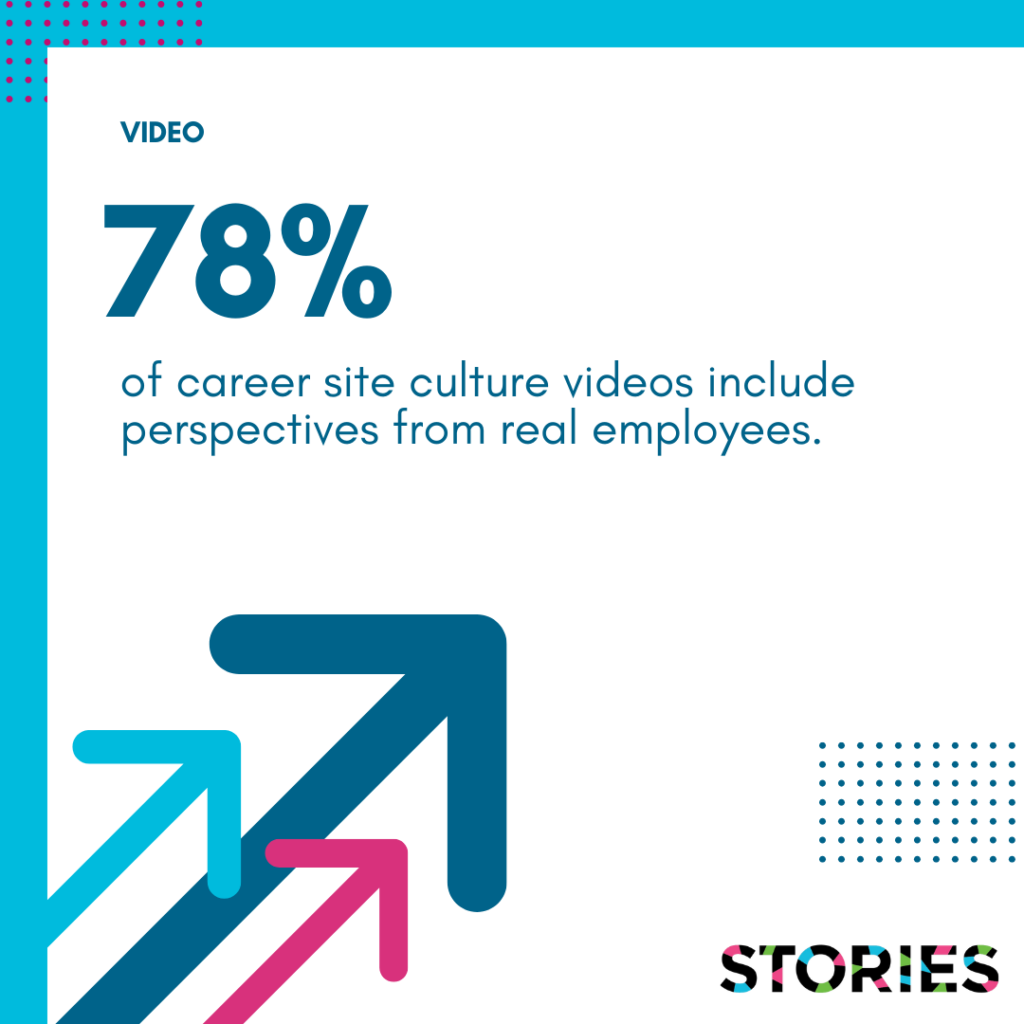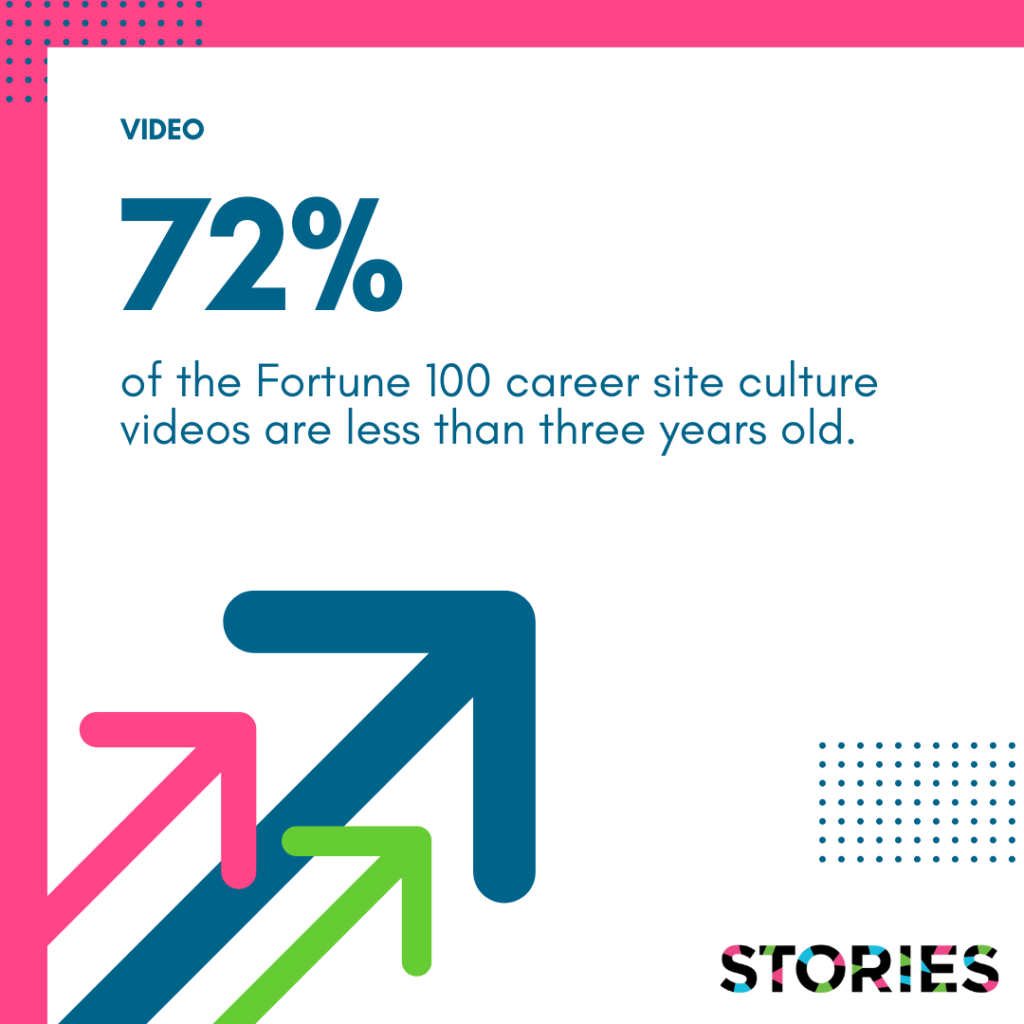2025 State of Career Sites: What’s Working (and Not Working) for Top Workplaces [New Research]
67% of candidates visit a company’s careers page before they apply for a job.
What do they see when they get there?
We looked at all 100 career sites of the 2025 Fortune Best Companies to Work For list to see what they’re showing candidates. Read on to learn what’s working—and what’s not—on top career sites. Plus, how each industry stacks up.
But First: A Quick Look Back at the 2024 Report
This is our second year analyzing the career sites of the Fortune 100 Best Companies to Work For list. In our 2024 career site research, we found that while video content was going mainstream and more companies were showcasing employee stories, stock photography still dominated careers homepages.
Specifically:
- 52% of companies used professional images of their own employees
- 63% featured a culture video—75% included real employees
- 65% had either no video or one that was over 3 years old
The best career sites focused on real stories, real people, and current experiences to connect with candidates in meaningful ways. With that mindset, we headed into analyzing the 2025 list to see how career sites have shifted in the past year.
What’s New in 2025: How Career Sites Changed in the Last Year
Most of the companies on the 2025 Fortune Best Companies to Work For list also appeared on the 2024 list, with only twelve new additions. Among the returning companies, just 25% made updates to their main careers page—primarily adding new videos or text-based employee stories and testimonials. Surprisingly, when content was removed from career sites, it was always video. In fact, twelve companies reduced the amount of content on their sites by removing videos and not replacing them.
The good news: overall, employee-driven content is on the rise. We saw small but encouraging increases in the percentage of companies using professional employee photos, featuring real employees in video content, and a larger increase in sharing testimonials or written employee stories.
Top career site photography still relies on stock photos
Stock photography continues to dominate Fortune 100 career sites. Only 53% of companies used professionally taken images of their own employees on their careers homepage. While user-generated content works well for social media, your career site—especially the hero image—is a place where high-quality, employee-focused photography can make a stronger, more authentic impression.
There is one industry that stands out for using professional employee imagery and it’s hospitality and retail. 87% of companies in this industry on the Fortune 100 list included their people in high-quality photos on their career sites.


Key takeaway: A day of professional photography is one of the most budget-friendly employer brand projects you can do in a year. Make it a priority in the coming budget cycle so your site shows off your people.
Career site video content decreases
This year, there was a slight drop in the number of career sites using prominently placed culture videos—down to 60% from 63% last year. However, among those using video, there was a positive shift: 78% of culture videos now feature real employees, up from 75%.
Industry trends shifted as well. Hospitality and retail companies now lead in video content, with 80% including culture videos on their career sites. Healthcare and pharma also made big strides, with video usage jumping from 36% to 53%.

Key takeaway: Featuring real employees in career site video content remains a best practice. If you have employee story video content, find a home for it on your career site. People want to see and hear from other people like them.
But some video content got a refresh
Last year, 65% of companies either had no video on their career site or were using a culture video that was more than three years old. That number is improving: this year, we saw a 22% increase in the number of companies using video content less than three years old.
Candidates notice when content is outdated—especially video. And with today’s evolving work environments, showing your current culture is critical.

Key takeaway: Audit your video content. When was your last culture video filmed? Does it reflect your organization today? If not, it’s time to create a plan to refresh.
Written stories make a comeback
The biggest year-over-year increase came from written employee content. In the past year, 25% more companies added employee testimonials and text-based stories to their career sites. It’s a promising trend that allows more employees to share their unique experiences—and gives candidates a richer, more diverse view of what it’s like to work there.
Key takeaway: Don’t underestimate the power of written stories. They’re easy to add, cost-effective to create, and a great way to scale storytelling across your site.
Career site content by industry
Content trends still vary significantly by industry, but we’re seeing improvements across the board. Each sector has its strengths and opportunities—whether it’s hospitality leading in video or healthcare making gains in employee imagery.
Want to see how your career site stacks up? Take our quick Career Site Content Quiz to benchmark your site against others in your industry.



What Top Career Sites have in Common
The biggest takeaway from our research? The best career sites center their content around their people. From high-quality images that represent real jobs and environments to videos and stories that bring culture and values to life, employee-driven content is what sets top sites apart—and helps convert curious candidates into enthusiastic applicants.
Need ideas? Here are nine types of content that are important for any company career site.
If you find this research helpful in benchmarking your career site content, check out our other latest research reports:
- How Fortune 100 “Best Companies to Work For” showcase DEI on career sites
- Communicating with Gen Z in the workplace
About our methodology
Our observational research started at every company’s careers home page and reviewed content on the home page as well as the main culture or Life At pages.

